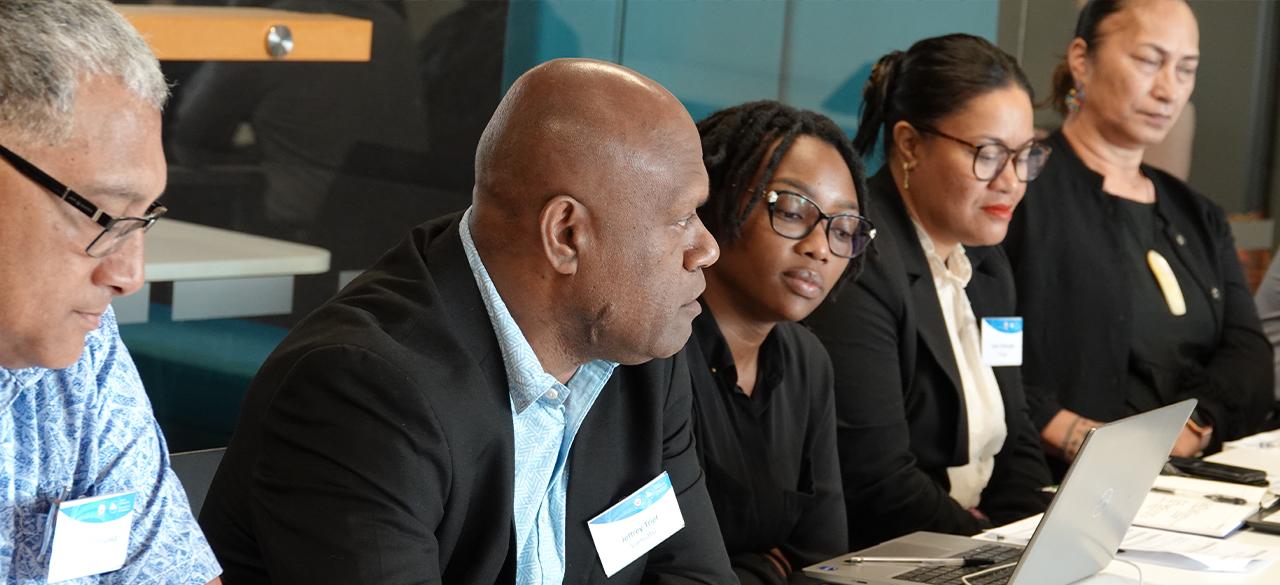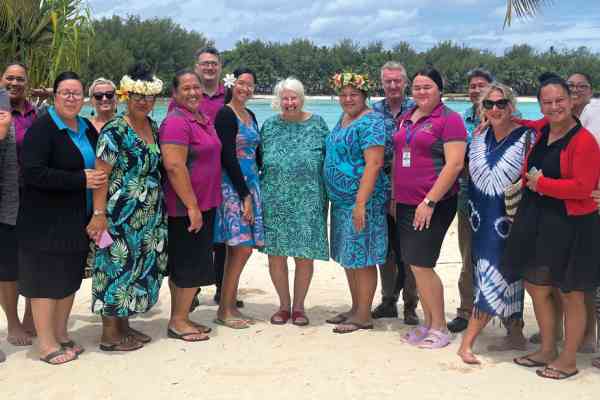Landmark research on the potential to share news of births, deaths and other life events across national agencies and borders has been shared by the Pacific Community, charting a new frontier for civil registration and vital statistics ahead of a major conference in the field.
The Pacific Community (SPC), with support from the Australian Government and Plan International, has completed groundbreaking analysis on the potential for interoperability of civil registration, health information and statistics across eight countries and territories in the Pacific region.
It is thought to be the first time that research like this has been done, with civil registration and vital statistics—the recording of births, adoptions, marriages, name changes, divorces and deaths, and their flow-on use in official statistics—usually seen as an internal, rather than international, matter.
The report comprises a detailed examination of experiences in American Samoa, the Cook Islands, Fiji, Niue, Samoa, Tokelau, Tonga and Vanuatu, and provides practical advice to jurisdictions planning to move to or replace digital registration systems.
The work looks at interoperability and the sharing of data both nationally and regionally. Within countries and territories, this includes—for example—the exchange of information between settings where people are commonly born or die, like hospitals, with registry and passport-issuing agencies.
It also looks at the need to share data across borders. The Pacific region sees large patterns of migration, with the need to exchange information about births and deaths in the context of trans-border initiatives, spanning public health to border security, or where a secondary country—like the United States of America or New Zealand—is responsible for issuing travel identity documents.
The work is borne of SPC’s expertise in civil registration and vital statistics, and the support of its partners in development. Mr Jeff Montgomery, SPC’s Civil Registration and Vital Statistics Adviser, formerly New Zealand’s Registrar-General, co-authored the report with consultant Mr Zoran Djokovic.
“Interoperability and data-sharing of civil registration information within and between countries is an emerging issue in the Pacific and globally,” Mr Montgomery explains.
“Exchanging robust, joined-up data about births, deaths and other life events has the potential to improve not only civil registration and vital statistics, but complex, multi-sector issues that transcend borders. This first-of-its-kind research outlines possible ways forward.”
Developmental and digital divergence in the Pacific
The release of the research comes ahead of a milestone meeting for civil registration and vital statistics, coordinated by the United Nations Economic and Social Commission for Asia and the Pacific, that will recap and review a decade of work that has sought to ‘Get every one in the picture’.
Among Pacific countries and territories, registration rates of births and deaths vary significantly, and the report captures the divergent states of digital development that represent one factor in this.
Data-sharing capabilities across Pacific civil registration and vital statistics can be categorised into three levels of development:
- Emerging digital systems with limited integration; most Pacific countries and territories fit into this category.
- Digitised and moderately integrated systems, with a significant proportion of records digitised and some level of data-sharing with other government systems.
- Highly integrated and digitised systems; this category includes systems with extensive electronic data-sharing across various government departments, with only Fiji fitting into this category.
“The size of a country’s population, and number of births and deaths, are important considerations for our recommendations on next steps which our analysis considers,” explains Mr Montgomery.
“In very small Pacific nations, simple extensions of the civil registration platform into health facilities might be more advantageous and cost-effective than other forms of data-sharing.
“The implementation of digital data-sharing across the Pacific—within country and between countries—requires tailored solutions based on the specific requirements and constraints of each country.
“A flexible, hybrid model that accommodates both real-time and periodic data-sharing, underpinned by standardised practices and a strong focus on security and privacy, emerges as a key strategy for effective and sustainable digital transformation.”
From public health to migration matters
At the inter-country level, data-sharing becomes a vital tool for addressing global challenges such as migration, human trafficking, identity theft, and international health crises.
For those with responsibilities in public health, the prospect of sharing data between health facilities and civil registration agencies is of critical interest—with access to good-quality information about births and deaths informing public health responses and campaigns.
Similarly, countries having significant travel or migration flows between them could greatly benefit from exchanging civil registration data for those working in a border-policing or immigration context.
“Digital systems offer fast and cost-effective data-sharing,” says Mr Montgomery. “But also challenges like data privacy, security concerns and the need for common standards.
“This report is a key milestone and important tool in the work that SPC’s Statistics for Development and Public Health Divisions are doing in partnership with our member states to improve civil registration and vital statistics in the Pacific—and in turn, the pursuit of sustainable development.”
Events
- For those with a professional or academic interest in civil registration and vital statistics, the report will be shared and discussed at the UNESCAP Regional Steering Group for Civil Registration and Vital Statistics (CRVS) in Asia and the Pacific, Bangkok, Thailand, 7–9 May 2024.
- For those with a professional or academic interest in border security and migration matters, the report will be shared and discussed at the International Civil Aviation Organisation (ICAO) Implementation and Capacity Building Working Group Meeting and Regional Workshops, Nadi, Fiji, 3–7 June 2024.
Further reading
- Read the report, in brief or in full (PDF)
- Learn more about SPC’s work in civil registration and vital statistics

